http://repositorio.uotavalo.edu.ec/handle/52000/747| Tipo de material : | masterThesis |
| Título : | La neurociencia en el proceso de enseñanza aprendizaje en la Unidad Educativa Gabriel García Moreno. |
| Autor : | Merino, Vicente C. |
| Tutor de tesis : | Suárez, Noemí, tutora |
| Palabras clave : | Educación;Neurociencia;Procesos;Enseñanza |
| Otros descriptores: | Educación |
| Fecha de publicación : | jun-2022 |
| Editorial : | Otavalo |
| Páginas: | 41p. |
| Citación : | Merino, V. (2022). La neurociencia en el proceso de enseñanza aprendizaje en la Unidad Educativa Gabriel García Moreno. Maestría en Educación. Universidad de Otavalo. |
| Citación : | Proyecto de Posgrados; |
| Resumen : | El problema detectado en docentes de la Unidad Educativa, de la parroquia García Moreno, del cantón Cotacachi, provincia de Imbabura, radica en el escaso conocimiento que los maestros poseen sobre los principios de la Neurociencia, como herramienta en la aplicación de la neurodidáctica. Debido a deficiencias de formación profesional, ocasionando dificultades de aprendizaje al educando. Esta investigación tiene como objetivo proporcionar al docente alternativas de aplicación de los principios de la Neurociencia en el proceso educativo. En la investigación se utilizó la metodología cualitativa para identificar falencias de los docentes al aplicar los principios de la neurodidáctica. Se utilizó como técnica de recolección de datos la entrevista que recogió las opiniones de los actores educativos y el análisis de su contenido para examinar los resultados. Participaron en la investigación 12 sujetos (docentes, tutores y directivos) seleccionados por desarrollar funciones específicas: la gestión, la docencia y la tutoría. La constatación de los resultados finales evidencia que los docentes en su mayoría tienen dificultades para aplicar los principios de la Neurodidáctica que permiten un aprendizaje significativo. Los datos revelan la necesidad de proponer alternativas en al menos tres ámbitos específicos; el teórico que le permitirá al docente profundizar en el tema de forma pertinente a la educación, el práctico donde se proponen acciones que fusionen el concepto y la teoría llevadas a la concreción de técnicas, el tecnológico que logra fusionar la teoría y la práctica con ayuda de herramientas sencillas, pero de avanzada. |
| Sponsor: | Universidad de Otavalo |
| Descripción : | The problem detected in teachers of the Educational Unit, of the García Moreno parish, of the Cotacachi canton, province of Imbabura, lies in the scarce knowledge that teachers have about the principles of Neuroscience, as a tool in the application of neurodidactics. Due to deficiencies in professional training, causing learning difficulties for the student. This research aims to provide the teacher with alternatives for applying the principles of Neuroscience in the educational process. In the investigation, the qualitative methodology was used to identify teachers' shortcomings when applying the principles of neurodidactics. The interview that collected the opinions of the educational actors and the analysis of its content were used as a data collection technique to examine the results. Twelve subjects (teachers, tutors and managers) participated in the research, selected for carrying out specific functions: management, teaching and tutoring. The verification of the final results shows that most teachers have difficulties in applying the principles of Neurodidactics that allow meaningful learning. The data reveals the need to propose alternatives in at least three specific areas; the theoretical one that will allow the teacher to delve into the subject in a way that is pertinent to education, the practical one where actions are proposed that merge the concept and theory leading to the realization of techniques, the technological one that manages to merge theory and practice with the help simple but advanced tools. |
| URI : | http://repositorio.uotavalo.edu.ec/handle/52000/747 |
| Aparece en las colecciones: | Maestría en Educación |
| Fichero | Descripción | Tamaño | Formato | |
|---|---|---|---|---|
| PP-EDU2-2022-044.pdf | Proyecto a texto completo | 1.27 MB | Adobe PDF |  Visualizar/Abrir |
Este ítem está protegido por copyright original |
Este ítem está sujeto a una licencia Creative Commons Licencia Creative Commons


